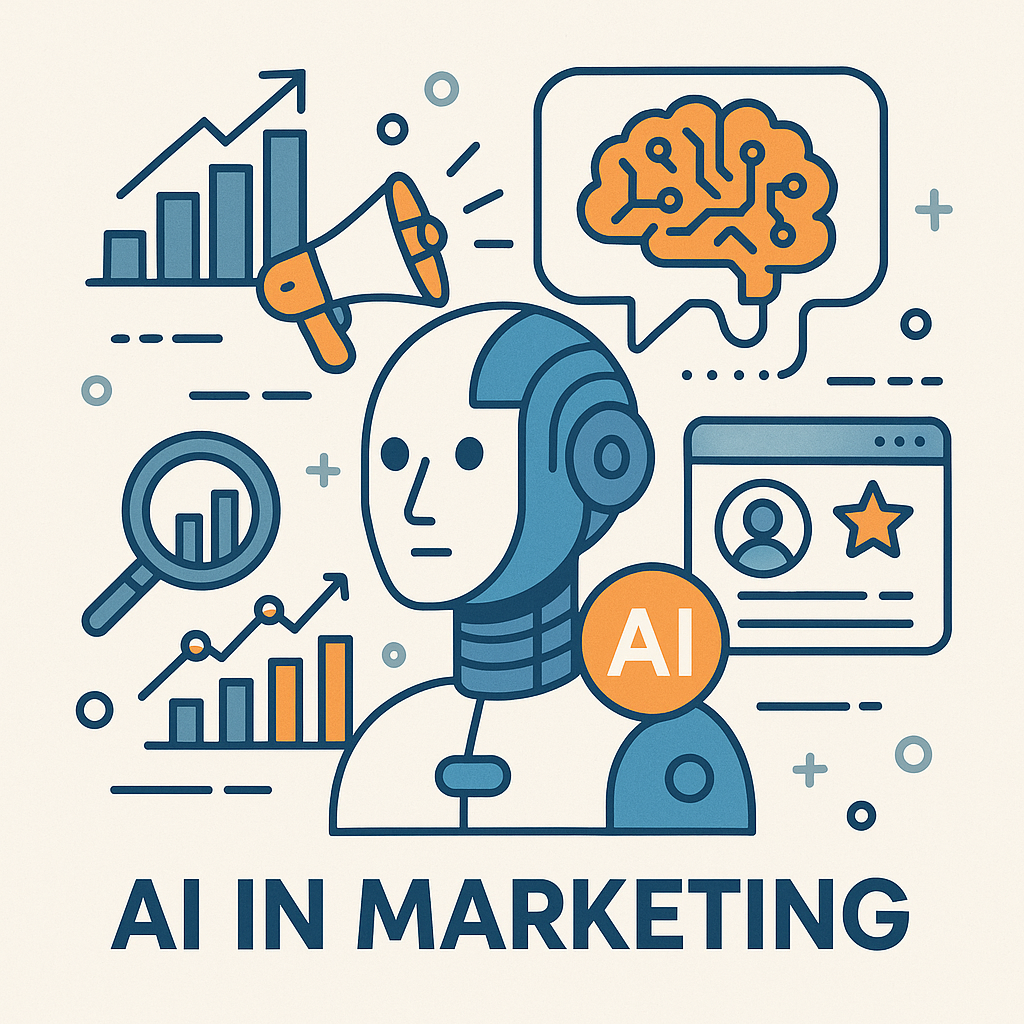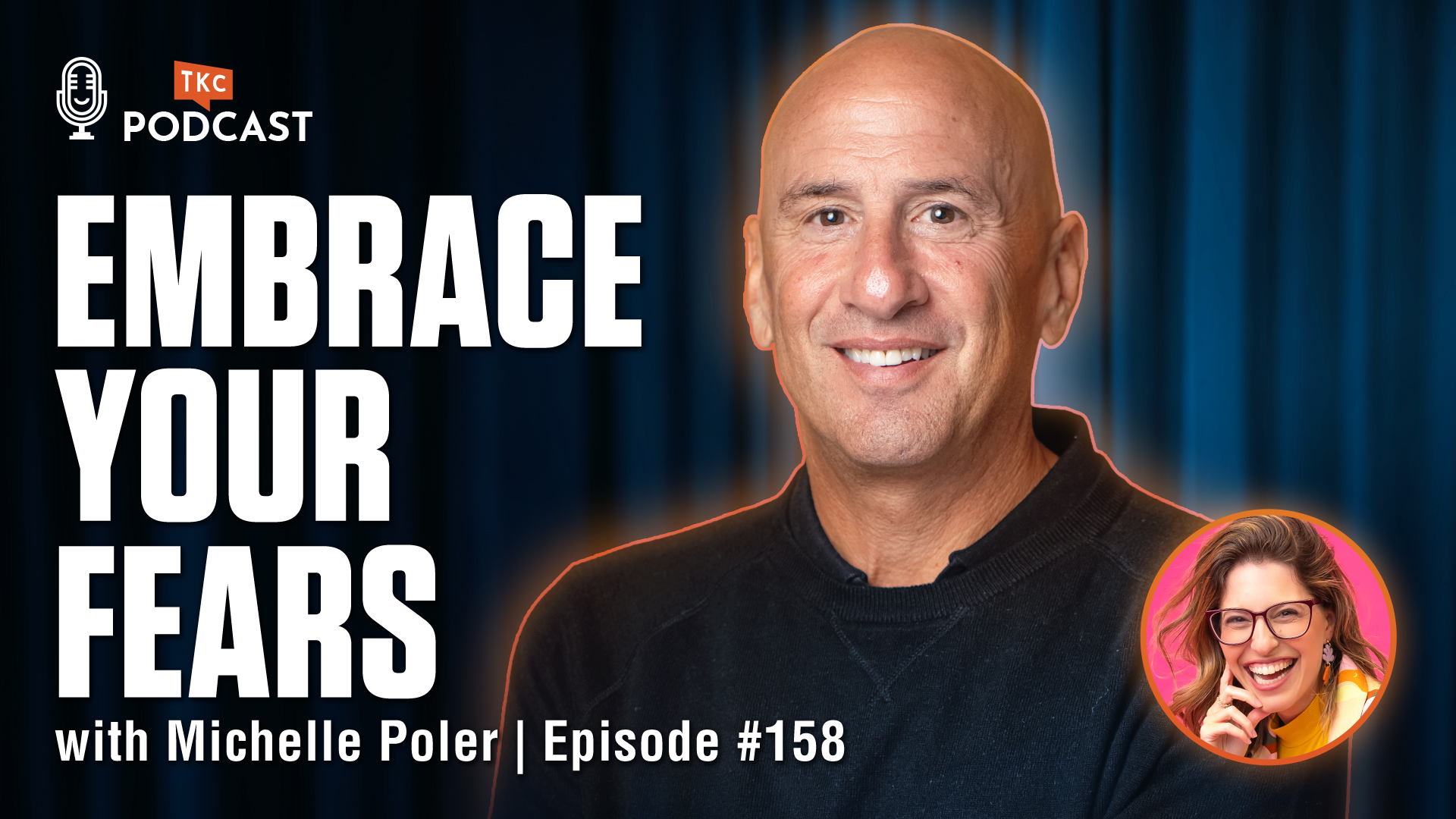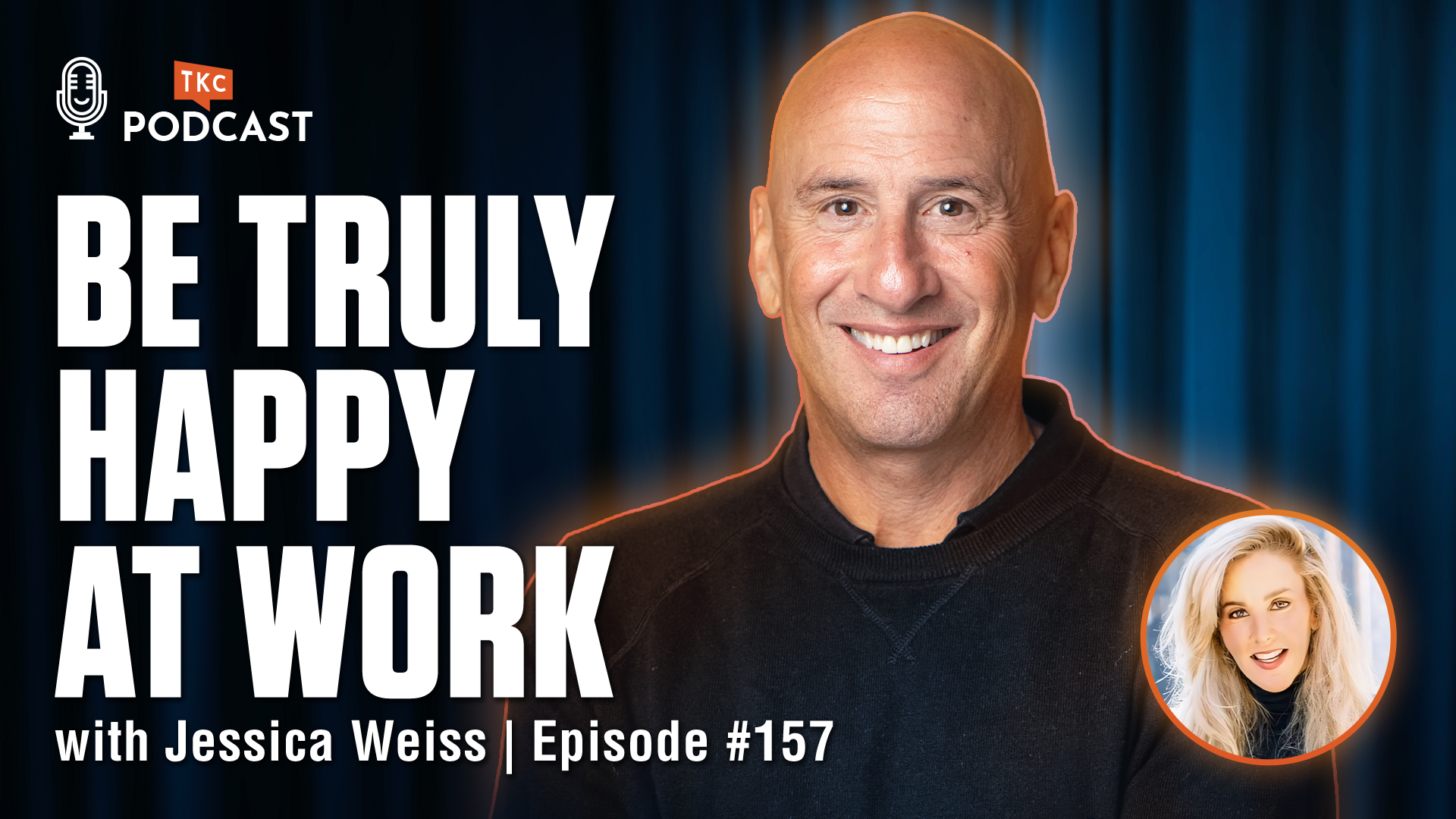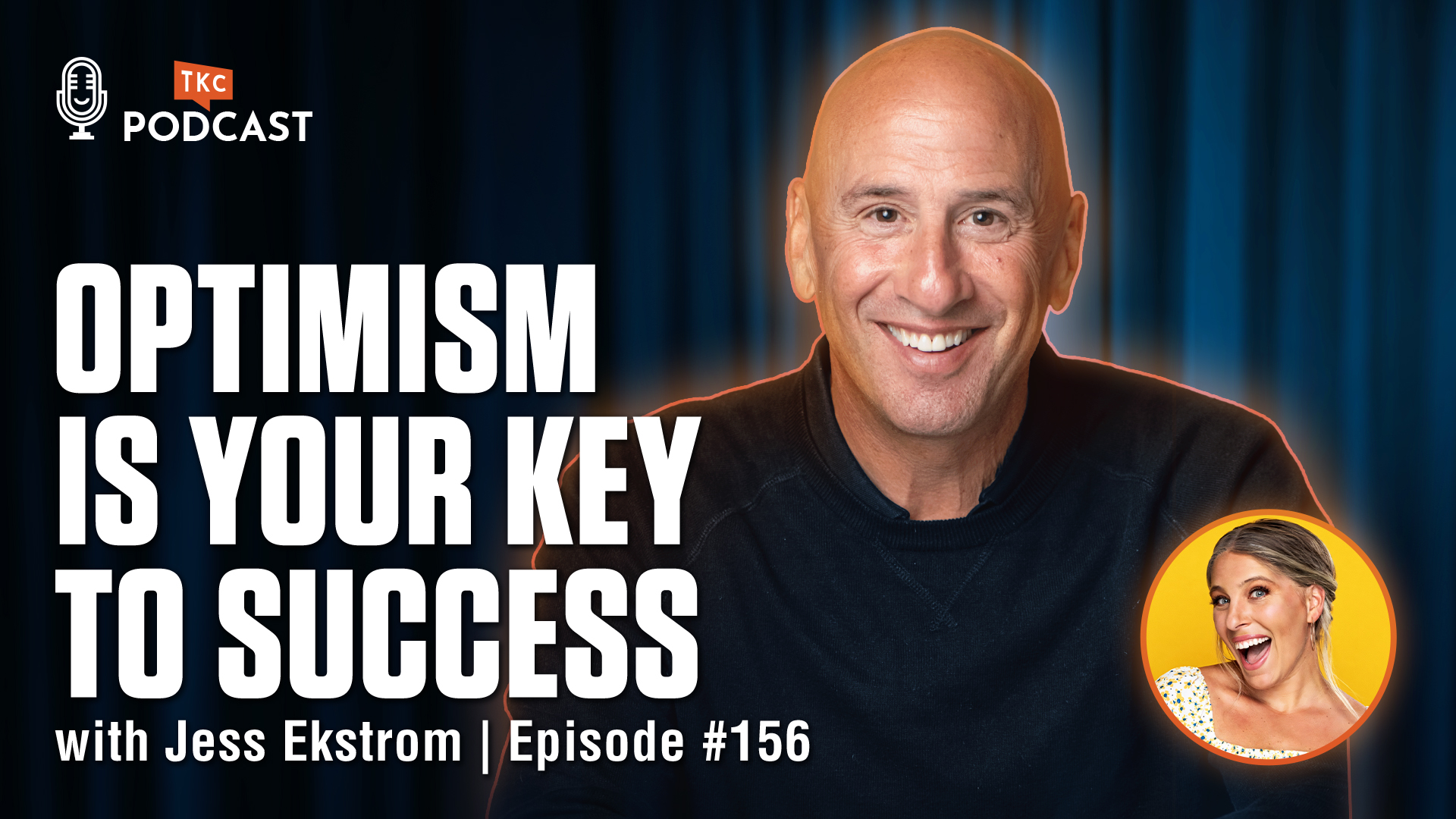
June 16, 2025AI, GEO, & SEO Marketing for Speakers: The 2025 Authority-Building Playbook
How Professional Speakers and Speaker Bureaus Can Leverage AI to Build Unshakeable Authority and Increase Visibility in the New Search Landscape
How Professional Speakers and Speaker Bureaus Can Leverage AI to Build Unshakeable Authority and Increase Visibility in the New Search Landscape
Table of Contents
The speaking industry is experiencing its most significant transformation since the advent of digital marketing. AI Overviews now appear in over 13% of all searches—and that number continues to climb, fundamentally changing how potential clients discover and evaluate speakers. Yet amid the noise and panic surrounding AI’s impact on SEO, a collaborative approach is becoming more and more popular. At the TKC, we are seeing that Savvy speakers are using this approach to build unprecedented authority and visibility.
Let’s get something straight out of the bin. This isn’t about AI replacing speakers or traditional marketing disappearing overnight. This is about partnership—between human expertise and artificial intelligence—that amplifies your unique voice and reaches audiences in ways previously impossible. In other words, beyond the noise, this is how you should use AI to improve your digital presence and overall brand value as a speaker.
Understanding Your New Teammate: The Psychology of AI Adoption
Before a speaker can effectively leverage AI, they must first understand its nature and the psychological reactions it provokes. For a professional speaker, AI is not an oracle or a creative genius in a box. At its core, it is a sophisticated pattern-matching engine. It leverages machine learning and vast datasets to analyze, predict, summarize, and generate content based on the information it has been trained on.
A crucial distinction is that AI does not understand language, context, or truth in a human sense; it mimics it through complex statistical representations. This is why it can produce text that is grammatically perfect but factually incorrect—a phenomenon known as “hallucination”.
This fundamental limitation is, in fact, a speaker’s greatest strength. AI has no lived experience, no genuine emotional intelligence, and no unique point of view. As author and marketer Seth Godin states, “Thought leadership always creates tension. It’s about making assertions and you have to be willing to be wrong”. An AI cannot take a controversial stand, share a vulnerable personal story, or connect with an audience through the shared empathy of “little life moments”. These are the irreplaceable assets of a human thought leader. Therefore, the role of AI is not to be the author but the assistant, a powerful tool that requires a “human-in-the-loop” to guide, edit, and validate its output.
What’s The Real AI Revolution?
Contrary to the doom-and-gloom narratives flooding social media, search isn’t dying – it’s fracturing – as it always has when new platforms emerge and achieve mainstream adoption. The fundamental truth remains: people are still asking questions that require content, expertise, and trust.
The difference now is that they’re asking those questions across multiple platforms—Google, ChatGPT, Perplexity, TikTok, LinkedIn, industry-specific AI tools—and expecting authoritative answers wherever they search. For speakers, this is arguably the greatest opportunity in a generation to establish thought leadership across every platform where your ideal clients seek expertise.
Now Let’s Cut Through The AI SEO Noise
Let’s address the elephant in the room: the speaking industry is drowning in contradictory AI advice. Social media is filled with “experts” claiming everything from “SEO is dead” to “AI will replace all speakers.” The panic surrounding AI in SEO stems largely from misunderstanding current capabilities rather than genuine existential threats.
Despite sensationalized social media posts claiming “SEO is dead” that generate millions of views, organic search continues driving over 50% of website traffic, with traditional ranking factors remaining crucial for AI search results. AI chatbots currently represent only 2.96% of search engine traffic, while ChatGPT, as a fact-checker, achieves just 50% accuracy with significant limitations on recent events.
Here’s what the data actually shows:
The Reality of AI’s Impact on Search:
- AI search visitors could surpass traditional search visitors in 2028
- AI search visitors are 4.4 times as valuable as the average visit from traditional organic search, based on conversion rate
- Google search impressions are up 49% year-over-year, but click-through rates (CTR) are down 30%
What this means generally, and more importantly for speakers, is that the audience is growing, but the competition for attention is intensifying. Those who adapt their strategies to work with AI—rather than against it—will capture disproportionate value.
So What’s Causing The Speaker Visibility Crisis
Good question, isn’t it? We need to understand why traditional speaker marketing strategies are increasingly ineffective and whether or not traditional marketing strategies are indeed “dead!”
? The AI Search Revolution: Key Statistics
Sources: Semrush AI Overviews Study 2025, BrightEdge Analytics, Search Engine Land Research
The Authority Dilution Problem
Here lies the first problem – Authority Dilution (AD). The internet has democratized expertise, but it’s also diluted authority. Anyone can create a website, publish content, and claim to be a thought leader. For legitimate speakers with genuine expertise, this creates a credibility crisis where potential clients struggle to distinguish between authentic experts and self-proclaimed gurus.
Traditional SEO fundamentals like E-A-T-T (Experience, Expertise, Authoritativeness, Trustworthiness) become more critical than ever as AI-generated content floods the web, creating competitive advantages for speakers with authentic expertise.
For instance, data shows a 61% overlap between AI Overview citations and top organic results, meaning strong traditional SEO performance directly influences AI visibility. Pages with robust E-E-A-T signals demonstrate 30% higher chances of ranking in top positions, while sites optimized for both traditional and AI search see up to 48% traffic increases.
The Discovery Gap
The second problem – Discovery Gap (DG). 13.14% of all queries triggered AI Overviews in March 2025. That’s up from 6.49% in January 2025. What this means is that traditional SEO strategies that relied on ranking #1 for specific keywords are becoming less effective as AI systems aggregate information from multiple sources to provide comprehensive answers.
The fundamental shift toward AI-driven search represents more than just a technological upgrade—it’s a complete reimagining of how people seek and discover expertise. Traditional keyword-based searches like “leadership speaker Chicago” are rapidly being replaced by conversational, intent-rich queries that sound more like questions you’d ask a trusted colleague: “I need a speaker who can help my remote team build better communication skills and has experience with tech companies going through rapid growth.” This natural language approach means AI systems are now matching search intent based on contextual understanding rather than keyword density.
The Trust Verification Challenge
Now the third Problem – Trust Verification Challenge (TVC). Modern buyers don’t just want expertise—they want verified, cited, and cross-referenced expertise. AI Overviews cite YouTube, and Microsoft Copilot cites Forbes and Gartner.
For AI search recommendations, Quora leads as the most cited source, followed by Reddit, Semrush Blog, Wikipedia, and YouTube. This pattern reflects AI systems prioritizing community-generated content where real people share experiences and solutions. For speakers, this suggests participating in relevant forums and communities creates citation opportunities beyond traditional website SEO.
ChatGPT shows heavy Wikipedia dependence at 47.9% of top citations, with 80% sourced from .com domains and 11.29% from .org sites. The platform’s preference for established, authoritative sources means speakers benefit from contributing to industry publications, speaking at conferences that generate documented coverage, and maintaining a strong LinkedIn thought leadership presence.
Content type analysis done by experts shows that product-focused content receives the highest citation rates across all AI platforms, ranging from 46-70%, depending on funnel stage. Bottom-funnel content achieves 70%+ citation rates, indicating AI systems prioritize practical, implementation-focused information over abstract concepts.
Understanding these problems alongside how Generative Engine Optimization (GEO) works can help you ensure that your speaker profile and brand appear across all the platforms and citations most heavily mentioned and leveraged by large language models.
Now, to our recommendation.
Introducing the S.P.E.A.K. Framework: How to Use AI to Stand Out
Based on extensive research into successful AI SEO strategies and inspired by the collaborative principles outlined in Tim Sanders’ foundational document on PLAY-I (Play Intelligence), the TKC team has developed the S.P.E.A.K. Framework—a systematic approach to building speaker authority in the AI era.
S.P.E.A.K. stands for:
- Syndicate expert content across AI-discoverable platforms
- Position as the authoritative source through strategic citations
- Elevate visibility through AI-optimized content ecosystems
- Amplify reach using collaborative AI tools
- Keep building authentic relationships while scaling with AI
S – Syndicate Expert Content Across AI-Discoverable Platforms
The first pillar focuses on ensuring your expertise is discoverable wherever potential clients search for insights in your domain.
Today’s decision-makers don’t search in just one place. For instance, a corporate executive planning a leadership retreat might start with a Google search for “emotional intelligence speakers,” continue their research on LinkedIn, ask ChatGPT for specific recommendations, check YouTube for speaker demos, and finally consult industry publications for expert opinions. If your expertise isn’t visible across all these touchpoints, you’re invisible to potential clients, regardless of how qualified you are.
This shows a fundamental shift from the traditional “build a website and they will come” approach. Modern speaker discovery happens across an ecosystem of interconnected platforms, each serving different stages of the buyer’s journey. A conference organizer might discover you through an AI Overview on Google, evaluate your expertise through your LinkedIn content, watch your speaking samples on YouTube, and validate your credibility through citations in industry publications—all before ever visiting your website.
The Strategic Syndication Advantage
Think of platform syndication as creating multiple entry points into your expertise ecosystem. Each platform serves a specific purpose in building your authority. For instance,
Discovery Platforms: Google AI Overview, ChatGPT, helps potential clients find you when they’re exploring solutions to their challenges.
Evaluation Platforms (LinkedIn, industry publications) allow them to assess your depth of knowledge and approach.
Validation Platforms (YouTube, speaking reels, client testimonials) help them visualize you delivering value to their specific audience.
Engagement Platforms (social media, newsletters, webinars) enable them to experience your expertise firsthand before making a booking decision.
The key insight is that each piece of content you create should be strategically adapted for optimal performance on different platforms, rather than simply copying and pasting the same content everywhere. A comprehensive research report might become a LinkedIn article series, a YouTube educational video, a Quora answer thread, and a quotable industry insight—each version optimized for how audiences consume information on that specific platform.
Implementation Strategy:
Platform Diversification Matrix: Create content specifically optimized for the platforms that AI systems most frequently cite:
- Wikipedia Contributions: Open AI (ChatGPT) most frequently cites Wikipedia. Contribute to or create Wikipedia entries related to your expertise area.
- Quora Authority Building: Quora is the most commonly cited website in Google AI Overviews, according to our AI search study. Reddit comes in second place. Answer questions in your expertise area with comprehensive, cited responses.
- YouTube Content Strategy: Develop a consistent YouTube presence with educational content, as video increasingly appears in AI-generated responses.
- Industry Publication Features: Secure bylined articles in publications that AI systems frequently reference in your industry.
Content Creation Process: Rather than creating content and hoping it gets discovered, reverse-engineer the process:
- Research what questions AI systems are answering in your expertise area
- Identify gaps where human expertise and experience are essential
- Create comprehensive content that addresses these gaps
- Optimize for multiple platforms simultaneously
P – Position as the Authoritative Source Through Strategic Citations
The second pillar focuses on becoming the go-to source that other authoritative entities cite when discussing your expertise area.
In the AI era, being mentioned isn’t enough—you need to be cited. There’s a critical difference between these two concepts that directly impacts your long-term visibility and credibility. When someone mentions you in passing (“John Smith, a leadership speaker”), it creates momentary awareness. When someone cites you as an authoritative source (“According to leadership expert John Smith’s research on remote team dynamics…”), it establishes lasting credibility that AI systems and human decision-makers recognize and amplify.
AI systems are essentially massive citation engines. They don’t randomly select sources—they prioritize content from entities that other authoritative sources already trust and reference. This creates a virtuous cycle: the more you’re cited by respected authorities, the more likely AI systems are to include you in their responses, which increases your visibility and leads to more citations. Breaking into this cycle requires strategic thinking about how you can become genuinely useful to other experts, journalists, and thought leaders in ways that naturally lead to citations.
The Modern Authority Paradox
Traditional authority was often built through credentials and institutional affiliations—having the right degree from the right university, working for the right company, or being endorsed by the right people. While these still matter, digital authority operates on different principles. It’s less about who you know and more about what unique value you consistently provide to the broader conversation in your field. The paradox is that in an information-abundant world, the path to authority isn’t through gatekeepers—it’s through becoming genuinely indispensable to other authorities.
This shift creates unprecedented opportunities for speakers who understand how to position themselves strategically. You don’t need permission from established institutions to become citable. You need to consistently produce insights, data, and frameworks that other experts find valuable enough to reference. This might mean conducting original research that fills knowledge gaps, developing proprietary methodologies that solve common problems, or synthesizing complex topics in ways that make them accessible to broader audiences. The key is understanding that citation-worthy content serves other authorities first and your marketing goals second.
Implementing The Citation Ecosystem Strategy:
Primary Citation Building:
- Conduct original research that generates quotable statistics
- Develop proprietary frameworks (like this S.P.E.A.K. framework) that others reference
- Create industry reports that establish you as a data source
- Host expert roundtables that generate newsworthy insights
Secondary Citation Amplification:
- Media mentions across trusted publications. You may use or Search Atlas Citation Tool.
- Create first-party research that establishes your expertise. Expert quotes and branded citations are the foundation of AI discoverability.
- Add schema-enriched pages with structured data to enhance AI bots to understand your pages. The schema markup data should help AI systems understand your brand better. Include:
- Media mentions and accolades
- Your credentials and expertise areas
- Your speaking topics and experience
- Client testimonials and success stories
E – Elevate Visibility Through AI-Optimized Content Ecosystems
The third pillar involves creating interconnected content systems that work together to establish comprehensive topical authority.
Most speakers approach content creation like they’re building individual campfires—each piece of content stands alone, burns bright for a moment, then fades into digital obscurity. The ecosystem approach is different: it’s like building a sustainable forest where each tree (piece of content) strengthens the whole system. When AI systems evaluate expertise, they don’t just look at individual articles or videos—they assess the depth and interconnectedness of your entire body of work. A speaker with 50 isolated blog posts will lose to a speaker with 20 strategically connected pieces that demonstrate comprehensive mastery of their domain. This is similar to creating pillar content in traditional SEO.
This interconnected approach mirrors how expertise actually develops in the real world. True experts don’t just know random facts about their field—they understand how concepts relate to each other, how principles apply across different contexts, and how their specialty connects to broader business challenges. AI systems are increasingly sophisticated at recognizing this kind of comprehensive understanding, which means your content architecture needs to reflect the depth and connectivity of real expertise.
The Compound Authority Effect
Content ecosystems create what we call “compound authority”, where the value of your expertise grows exponentially rather than linearly. When someone discovers one piece of your content and finds it valuable, they’re naturally led to related pieces that deepen their understanding and confidence in your expertise. This journey transforms casual browsers into qualified prospects and qualified prospects into enthusiastic advocates. More importantly, it signals to AI systems that your content provides unique value that can’t be found elsewhere—the ultimate ranking factor in an AI-driven search landscape.
The compound effect extends beyond individual visitors to influence how other authorities perceive and cite your work. When industry peers see that you’ve thoroughly explored a topic from multiple angles—theoretical frameworks, practical applications, case studies, trend analysis—they’re more likely to reference your insights in their own work. This creates the citation momentum discussed in the previous pillar while establishing you as the definitive voice on your specialty topics.
For Implementation, use the Hub-and-Spoke Content Model:
Central Hub (Your Website): Your website becomes the authoritative center that aggregates and contextualizes your expertise:
- Topic Cluster Architecture: The key to thriving in this AI-dominated landscape is truly understanding the search intent of your target audience and solving their problems more thoroughly in your content than the competition
- Comprehensive Resource Centers: Create definitive guides on your core speaking topics
- Case Study Libraries: Document client transformations with specific metrics and outcomes
- Speaking Kit Resources: Provide downloadable assets that conference organizers can use
Content Spokes (Distribution Channels): Each piece of content should be adapted for optimal performance on different platforms:
- LinkedIn Articles: Thought leadership pieces optimized for professional discovery
- Medium Publications: In-depth analyses that establish your intellectual credibility
- Industry Podcasts: Audio content that showcases expertise in a conversational format
- Conference Presentations: Speaking opportunities that generate citable insights
AI-Optimization Techniques: Focus on making unique, non-commodity content that visitors from Search and your own readers will find helpful and satisfying. Then you’re on the right path for success with our AI search experiences, where users are asking longer and more specific questions.
READ ALSO: Using Artificial Intelligence to Amplify Human Creation
A – Amplify Reach Using Collaborative AI Tools
The fourth pillar leverages AI as a collaborative partner to scale content creation and distribution while maintaining authenticity.
The most successful speakers in the AI era don’t view artificial intelligence as a threat to their expertise—they view it as the ultimate research assistant, content amplifier, and efficiency multiplier. This mindset shift is crucial because it determines whether AI enhances your authority or undermines it. When you approach AI as a replacement for human insight, you inevitably produce generic content that diminishes your credibility. When you approach AI as a tool to scale your unique expertise, you can maintain authenticity while dramatically increasing your reach and impact.
Think of AI collaboration like having a brilliant intern who never sleeps, never gets tired, and can process information at superhuman speed—but who needs your expertise to know what questions to ask and how to interpret the answers. AI can analyze thousands of industry reports to identify emerging trends, but it takes your experience to understand which trends actually matter to your clients. AI can draft initial content outlines based on audience questions, but it takes your wisdom to know which insights will genuinely transform how people think about a challenge. The magic happens when you combine AI’s processing power with your irreplaceable human expertise.
The Authenticity-at-Scale Challenge
One of the biggest concerns speakers have about using AI is maintaining their authentic voice while scaling their content production. This is a legitimate concern—audiences can sense when content feels manufactured or generic. The solution isn’t to avoid AI, but to develop AI collaboration workflows that amplify rather than replace your unique perspective. This requires being intentional about where AI adds value (research, first drafts, optimization suggestions) and where human expertise is non-negotiable (strategic insights, personal experiences, nuanced judgments).
The most effective approach treats AI as a starting point rather than an ending point. AI might help you identify the most pressing questions in your field and generate initial content frameworks, but your personal experiences, client stories, and hard-won insights are what transform generic information into compelling expertise. The goal is to use AI to handle the heavy lifting of information processing and initial content creation, freeing you to focus on the high-value activities that only you can provide: strategic thinking, relationship building, and delivering insights that change how people approach their challenges.
Implementing AI-Human Collaboration Workflow:
Content Ideation and Research:
- Use AI to analyze trending topics in your expertise area
- Generate comprehensive outlines based on audience questions
- Research competitor content gaps and opportunities
- Identify optimal publishing timing and platforms
Content Creation Partnership: As an example, the Keynote Curators team drives 70% human strategy, creativity, and relationship building and 30% AI execution, research, and optimization. This ratio ensures maintaining an authentic voice while leveraging AI efficiency.
Distribution Optimization:
- AI-powered social media scheduling based on audience activity patterns
- Automated email marketing sequences that nurture leads
- Dynamic content personalization for different audience segments
- Performance tracking and optimization recommendations
Quality Assurance Framework: Every piece of AI-assisted content must pass the “Expertise Test.”:
- Does it reflect genuine experience and insights only you could provide?
- Would your ideal client find it valuable and actionable?
- Does it position you as the authoritative source on this topic?
K – Keep Building Authentic Relationships While Scaling with AI
The final pillar ensures that AI amplifies rather than replaces the human connections that drive speaking opportunities.
The speaking industry operates on a fundamental truth that no amount of technological advancement can change: people hire speakers they know, like, and trust. This human element becomes even more critical in an AI-dominated era because, as information becomes increasingly commoditized, authentic relationships become increasingly valuable. The challenge isn’t choosing between relationship building and AI efficiency—it’s using AI to build better relationships at greater scale while maintaining the personal touch that makes those relationships meaningful.
AI’s greatest contribution to relationship building isn’t replacing human interaction—it’s providing the intelligence and efficiency that allows you to be more present and valuable in your human interactions. When AI handles routine tasks like research, scheduling, and follow-up sequences, you can focus your time on the high-impact relationship activities that only humans can provide: understanding nuanced client needs, providing personalized guidance, and creating the emotional connections that transform business relationships into lasting partnerships. The speakers who thrive in the AI era will be those who use technology to become more human, not more automated.
The Scale-Without-Sacrifice Principle
Traditional relationship building faces a fundamental constraint: there are only so many people you can personally connect with in a meaningful way. AI changes this equation by allowing you to maintain relationship intelligence at scale without sacrificing relationship quality. You can track the interests, challenges, and preferences of hundreds of contacts while still providing personalized value to each one. You can identify the perfect moment to reconnect with past clients when they’re facing challenges you can help solve. You can customize your communication style and content recommendations based on individual preferences and past interactions.
This doesn’t mean automating relationships—it means becoming supernaturally good at relationships by having better information and perfect timing. When you know that a past client just announced a major organizational restructuring (thanks to AI monitoring), you can reach out with a personalized message offering relevant insights. When you understand which of your content pieces resonated most with a particular prospect (thanks to AI tracking), you can tailor your proposals to address their specific interests. The technology serves the relationship, not the other way around, but it dramatically amplifies your ability to provide value to more people in more meaningful ways
Implementation Should Focus on Relationship-Centric AI Strategy:
Personal Branding Automation:
- AI-powered monitoring of mentions and speaking opportunities
- Automated relationship maintenance through personalized follow-up sequences
- Social media engagement amplification that maintains your authentic voice
- Content personalization based on individual prospect interests
Speaker Bureau Optimization: For speaker bureaus, AI can enhance rather than replace human relationship management using a number of the following systems:
- Client Matching Intelligence: AI analysis of client needs matched with speaker expertise
- Performance Prediction: Data-driven insights into speaker-event compatibility
- Proposal Automation: AI-assisted proposal creation that maintains personal touch
- Relationship Tracking: Comprehensive CRM integration that identifies opportunity patterns
Human-First Technology: Remember that speaking is fundamentally about human connection. AI should enhance your ability to:
- Identify and understand your audience more deeply
- Create more relevant and valuable content
- Reach more people who need your expertise
- Build stronger relationships through better communication
The Traditional vs. AI SEO Paradigm: What’s Actually Changed
⚡ Traditional SEO vs. AI SEO: The Paradigm Shift
?️ Traditional SEO
? AI-Optimized SEO
Traditional SEO still matters for earning AI citations, but the focus shifts from traffic volume to authority recognition
Understanding the differences between traditional SEO and AI-optimized strategies is crucial for speakers looking to maintain visibility in the evolving landscape.
The evolution and integration of AI Search Engines have not rendered SEO obsolete; it has made strategic, high-quality SEO more critical than ever. For speakers whose business often relies on being discovered for their expertise, understanding this new shift is non-negotiable. The goal is no longer just to rank, but to be recognized by AI as a definitive authority worth citing.
Geneartive Engine Optimization (GEO) is an evolution, and not the extinction of SEO. From the foregoing, you’d have keenly observed that the advent of AI-driven search does not erase the fundamentals of SEO; it reinforces them. Core principles like creating unique, helpful content, demonstrating E-E-A-T (Expertise, Experience, Authoritativeness, and Trustworthiness), building a robust backlink profile from reputable sources, and ensuring a technically sound website are the very signals that AI algorithms use to identify credible information. A website with a strong traditional SEO foundation is already well-positioned for the AI era.
The most significant evolution is the shift from a narrow focus on keywords to a broader strategy centred on topical authority. AI-powered search engines understand context and user intent. They are not merely matching keywords; they are seeking the most comprehensive and authoritative answers to a user’s query.
For a speaker, this means their website and digital presence must become a deep and holistic resource on their core subject matter, covering it from multiple angles. AI tools can significantly enhance this process by automating and accelerating tasks like keyword research, competitor analysis, and technical audits, freeing up time for strategic planning and content creation. Indeed, data as of June 2025 shows that websites using AI-powered SEO strategies report an average organic traffic increase of 30%.
Traditional SEO for Speakers: The Old Playbook
The traditional approach focused on:
- Keyword Rankings: Targeting specific terms like “leadership speaker” or “sales keynote”
- Website Traffic: Driving visitors to your speaker website
- Link Building: Securing backlinks from other websites
- Content Volume: Publishing frequently to maintain search visibility
Why Traditional SEO Still Matters: Ranking in standard search results could help you earn citations in ChatGPT and other AI systems. So, traditional SEO could remain just as important even as traditional organic traffic declines.
AI SEO for Speakers: The New Reality
The AI-optimized approach emphasizes:
- Authority Signals: Being recognized as the definitive expert in your niche
- Citation Worthiness: Creating content that other authorities reference
- Multi-Platform Presence: Appearing wherever your audience searches for expertise
- Conversational Optimization: Answering the complex questions AI systems field
Key Differences in Practice:
Content Strategy:
- Traditional: Target specific keywords
- AI-Optimized: Answer comprehensive questions and provide unique insights
Success Metrics:
- Traditional: Rankings and traffic
- AI-Optimized: Citations, mentions, and authority recognition
Optimization Focus:
- Traditional: On-page SEO elements
- AI-Optimized: Expertise, authority, and trustworthiness signals
Practical Implementation: The 90-Day Speaker Visibility Sprint
Here’s how to implement the S.P.E.A.K. Framework in your first 90 days:
? 90-Day Speaker Visibility Sprint
Transform your AI visibility with this proven, step-by-step implementation roadmap
?️ Foundation Building (Syndicate & Position)
? Week 1-2: Platform Audit & Setup
- Audit current digital presence
- Identify top 3 client platforms
- Optimize profiles with expertise signals
- Set up schema markup
? Week 3-4: Content Research & Planning
- Research AI system questions
- Identify unique experience gaps
- Create content calendar
- Develop proprietary framework
? Content Creation & Optimization (Elevate & Amplify)
? Week 5-6: Authority Content Creation
- Publish comprehensive guide
- Create data-driven insights
- Start high-authority contributions
- Launch AI-assisted workflows
? Week 7-8: Distribution & Engagement
- Adapt content for multiple platforms
- Engage with industry experts
- Seek speaking opportunities
- Begin systematic citation building
? Relationship Building & Scaling (Keep)
? Week 9-10: Relationship Amplification
- Implement AI relationship tracking
- Personalize outreach sequences
- Create value-first networking
- Develop strategic partnerships
? Week 11-12: Performance Optimization
- Analyze content performance
- Optimize AI collaboration
- Refine expertise positioning
- Plan next authority phase
? Success Metrics to Track
Days 1-30: Foundation Building (Syndicate & Position)
Week 1-2: Platform Audit and Setup
- Audit your current digital presence across all major platforms
- Identify the top 3 platforms where your ideal clients seek expertise
- Optimize your profiles with consistent branding and expertise signals
- Set up comprehensive schema markup on your website
Week 3-4: Content Research and Planning
- Research the questions AI systems answer in your expertise area
- Identify content gaps where your unique experience is essential
- Create a content calendar that addresses these gaps
- Develop your first piece of original research or proprietary framework
Days 31-60: Content Creation and Optimization (Elevate & Amplify)
Week 5-6: Authority Content Creation
- Publish your first comprehensive guide addressing a major question in your field
- Create and distribute a data-driven industry insight
- Start contributing to high-authority platforms (Quora, Wikipedia, industry publications)
- Launch your first AI-assisted content creation workflow
Week 7-8: Distribution and Engagement
- Adapt your core content for multiple platforms
- Engage meaningfully with other experts in your field
- Seek speaking opportunities that can generate citable insights
- Begin systematic citation building through expert quotes and data sharing
Days 61-90: Relationship Building and Scaling (Keep)
Week 9-10: Relationship Amplification
- Implement AI-powered relationship tracking and engagement
- Personalize outreach to conference organizers and speaker bureaus
- Create value-first networking sequences
- Develop strategic partnerships with other industry experts
Week 11-12: Performance Optimization
- Analyze which content formats and platforms drive the best results
- Optimize your AI collaboration workflows
- Refine your expertise positioning based on market response
- Plan your next phase of authority building
Advanced Strategies: The Speaker’s AI Marketing Toolkit
Proprietary Data as Competitive Advantage
As an expert, you need to build credibility and provide fresh expertise beyond what AI alone can produce, which all channels seek to surface. Develop systems for:
Original Research Creation:
- Industry surveys that generate quotable statistics
- Client outcome tracking that demonstrates ROI
- Trend analysis based on your speaking experiences
- Predictive insights based on your expertise
Data Syndication Strategy:
- Package insights for media consumption
- Create shareable infographics and reports
- Develop quotable frameworks and methodologies
- Establish yourself as a go-to source for industry commentary
AI-Powered Content Personalization
Dynamic Bio Creation: Use AI to automatically customize your speaker bio based on:
- Event type and audience
- Industry focus and current trends
- Specific client challenges and needs
- Recent achievements and media mentions
Proposal Optimization: AI can enhance your speaking proposals by:
- Analyzing event requirements and customizing your pitch
- Suggesting relevant case studies and examples
- Optimizing pricing based on market data
- Personalizing follow-up sequences for decision-makers
Speaker Bureau AI Integration
For speaker bureaus, AI offers unprecedented opportunities to enhance service delivery:
Enhanced Client Matching:
- Analyze client needs against speaker expertise databases
- Predict speaker-event compatibility based on historical data
- Suggest alternative speakers when first choices aren’t available
- Optimize pricing strategies based on market dynamics
Performance Analytics:
- Track speaking effectiveness across different event types
- Identify patterns in successful speaker-client matches
- Predict and prevent potential issues before they arise
- Optimize speaker development recommendations
Avoiding the AI SEO Pitfalls: What Not to Do
The Content Volume Trap
Creating huge volumes of AI-generated content will not improve digital visibility in 2025 and beyond. Content marketers need to re-educate leadership on the notion that you can generate vast amounts of AI-generated content and expect it to be high quality.
Why Volume Fails:
- AI-generated content lacks the unique insights that establish expertise
- Search engines and AI systems prioritize authority over quantity
- Your audience can distinguish between authentic expertise and manufactured content
The Keyword Stuffing Evolution
Traditional keyword stuffing has evolved into “AI prompt stuffing”—creating content solely to trigger AI recommendations. This approach fails because:
- AI systems evaluate content quality and usefulness
- Your reputation suffers when you’re associated with low-value content
- Real expertise can’t be faked consistently across platforms
The Platform Abandonment Mistake
Some speakers are abandoning traditional platforms (Google, LinkedIn) in favor of newer AI platforms. This is shortsighted because:
- AI chatbots only represent 2.96% of search engine traffic, currently
- Your audience exists across multiple platforms
- Platform diversification provides stability and resilience
Measuring Success: AI SEO Metrics That Matter for Speakers
Traditional Metrics Still Worth Tracking
Website Performance:
- Organic traffic growth (quality over quantity)
- Time on site and engagement metrics
- Lead generation and inquiry quality
- Speaking opportunity conversion rates
Content Performance:
- Social shares and engagement
- Email list growth and engagement
- Media mentions and coverage
- Speaking calendar bookings
New AI-Era Metrics
Authority Indicators:
- Citations in AI-generated responses
- Mentions in industry AI systems
- Expert quote requests from the media
- Cross-platform expertise recognition
Relationship Quality:
- Quality of speaking inquiries
- Repeat client bookings
- Referral generation rates
- Industry influences growth
AI Collaboration Effectiveness:
- Time saved through AI assistance
- Content creation efficiency gains
- Lead qualification improvements
- Relationship management optimization
Future-Proofing Your Speaker Brand: What’s Coming Next

The Evolution of AI Search
AI Mode becomes the default search interface in the United States, transforming Google into a conversational assistant powered by Gemini 2.5. This means:
Conversational Expertise: Your expertise needs to be accessible through natural language conversations, not just keyword searches.
Context-Aware Responses: AI systems will remember previous interactions and provide increasingly personalized recommendations.
Multi-Modal Content: Video, audio, and interactive content will become increasingly important for AI discovery.
The Speaking Industry Transformation
Virtual Reality Speaking: As VR technology advances, speakers who adapt their content for immersive experiences will have significant advantages.
AI-Assisted Presentations: Real-time AI support during presentations will become commonplace, requiring speakers to develop new skills.
Personalized Content Delivery: Audiences will expect content customized to their specific challenges and contexts.
Getting Started: Your Next Steps
Immediate Actions (This Week)
- Audit Your Current AI Visibility: Search for your expertise area in ChatGPT, Google AI Overview, and other AI systems. Are you mentioned? Are your competitors?
- Claim Your Digital Territory: Ensure you have optimized profiles on all major platforms where your audience seeks expertise.
- Identify Your Unique Value: What insights can only you provide? What experiences are uniquely yours? This is your AI-proof advantage.
30-Day Goals
- Implement the S.P.E.A.K. Framework: Start with the foundation-building phase outlined above.
- Create Your First AI-Optimized Content: Develop one comprehensive piece that answers a complex question in your expertise area.
- Begin Citation Building: Start contributing to high-authority platforms and seeking expert opportunities.
90-Day Vision
- Establish Platform Authority: Be recognized as a go-to expert across multiple platforms.
- Generate Measurable Results: Track improvements in visibility, inquiries, and speaking opportunities.
- Optimize and Scale: Refine your approach based on results and prepare for advanced strategies.
Conclusion: The Collaborative Future of Speaker Marketing
The AI revolution in SEO and marketing isn’t about replacement—it’s about collaboration. Speakers who embrace AI as a tool to amplify their expertise, while maintaining the human connection that makes speaking powerful, will thrive in this new landscape.
The choice is yours: resist the change and watch your visibility decline, or embrace the collaborative approach and build unprecedented authority in your field. The tools exist, the strategies are proven, and the opportunity is immense.
AI will boost your growth strategy if you don’t shy away from being an innovator on the technology adoption curve. The speaking industry needs leaders who will show the way forward, combining human wisdom with artificial intelligence to serve audiences better than ever before.
The future belongs to speakers who understand that authority isn’t built by avoiding AI—it’s built by using AI to amplify authentic expertise in service of the audiences who need it most.
Your expertise matters. Your voice is unique. And with the right approach, AI can help ensure that both reach the people who need them most, when they need them most, across every platform where they’re seeking answers.
The question isn’t whether AI will change the speaking industry—it already has. The question is whether you’ll be among the speakers who lead that change or among those who get left behind.
Start building your AI-amplified authority today. Your future speaking opportunities depend on it.
Ready to implement the S.P.E.A.K. Framework for your speaking business? Contact the TKC to learn how we’re helping speakers build unshakeable authority in the AI era.
Tags: AI, artificial intellegence, GEO, SEO, Speaker insight
Discover More Insights
Get in TouchContact US
Fill out the form so we can best understand your needs.
A representative from The Keynote Curators will reach out to you.








